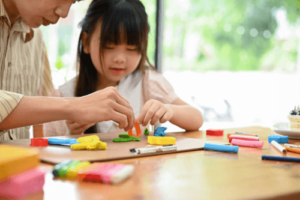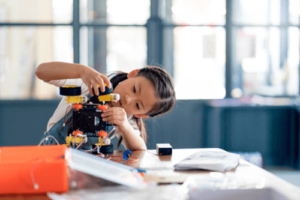Early childhood education plays a pivotal role in shaping the future of a nation. In Malaysia, it is widely acknowledged that a strong foundation during a child’s formative years is essential for their overall development.
Malaysia is committed to early childhood education because it understands how important it is to develop young minds and prepare them for a lifetime of study.
By providing children with high-quality education and care throughout their formative years, these initiatives hope to lay the groundwork for their success in the future.
It encompasses a wide range of institutions, including public and private preschools, kindergartens, childcare centers, and specialized early childhood education centers.
So, let’s embark on this enlightening exploration of early childhood education in the vibrant and culturally diverse nation of Malaysia.
Early Childhood Education Course

Early childhood education (ECE), usually referred to as nursery education, is a category of educational philosophy that deals with the formal and informal training of young children from birth to age eight.
Requirement
i) A pass in SPM with a minimum of 3 credits in any subject or its equivalent;
OR
ii) A pass in Sijil Tinggi Persekolahan Malaysia (STPM) with a minimum of Grade C (GP 2.0) in any subject or its equivalent;
OR
iii) A pass in Sijil Tinggi Agama Malaysia (STAM) with a minimum grade of Maqbul;
OR
iv) A pass in SKM Level 3 in Early Child Care/Preschool and pass SPM with a minimum of 1 credit in any subject;
OR
v) A Certificate in Early Childhood Education (ECE) or its equivalent;
OR
vi) A Certificate in any field or its equivalent.
For international students, Test of English as a Foreign Language (TOEFL) score of 500 OR International English Language Testing System (IELTS) score of 5.0 OR its equivalent.
There are several universities that provide early childhood education course:
- UNITAR
- Universiti Malaya
- SEGI University
10 Awesome Reasons to Study Early Childhood Education
Here are some of the key advantages:
1. Impact on Future Generations
By working with children, you have the opportunity to positively influence the lives of the next generation.
The knowledge and values can shape their character and contribute to their future success.
2. Joy and Fulfillment
Interacting with children often brings joy and a sense of fulfillment. Their curiosity, enthusiasm, and innocence can brighten your day and remind you of the simple joys in life.
3. Personal Growth
Working with children can enhance your own personal growth. You’ll develop patience, empathy, and communication skills that are valuable not only in your professional life but also in your personal relationships.
4. Job Satisfaction
Many people find great job satisfaction in roles involving children because of the sense of purpose it provides. Seeing a child learn, grow, and succeed can be immensely rewarding.Variety and
5. Creativity

Children thrive in environments that encourage creativity and exploration. Working with them often involves innovative teaching methods and activities, keeping your work dynamic and engaging.
6. Continuous Learning
Children are constantly evolving, and as an educator or caregiver, you’ll be continually learning and adapting to their changing needs and interests. This keeps the job intellectually stimulating.
7. Community Bonds
Working with children often connects you to a community of parents, fellow educators, and support networks. These connections can provide a sense of belonging and collaboration.
8. Career Opportunities

There is a demand for professionals skilled in child education and care, which can lead to stable employment and career advancement opportunities.
For example, you can be an early years teacher, family support worker, health play specialist, learning mentor, youth worker, social worker, teaching assistant and more.
9. Positive Impact on Society

Through your work, you contribute to the well-being and development of society as a whole.
Well-educated and well-adjusted children are more likely to become responsible and productive members of society.
10. Long-lasting Relationships
Building relationships with children and their families can lead to long-lasting connections.
Many educators and caregivers maintain strong bonds with the children they’ve worked with, even as they grow into adulthood.
There is much evidence to support the importance of your child’s early development to their health and wellbeing throughout later life.
It’s important to note that working with children also comes with challenges, including the responsibility of ensuring their safety and well-being, managing behavior, and adapting to individual needs.
Since 1997, Read Hero have successfully helped nearly 17,000 students aged 4-12 years to read fluently without spelling in as fast as 3 months.
With the streamlined READ HERO technique able to improve student understanding and acceptance.
Online teaching modules specially designed to maximize focus and student acceptance.
The learning system we practice is also compatible with learning the new norm!
